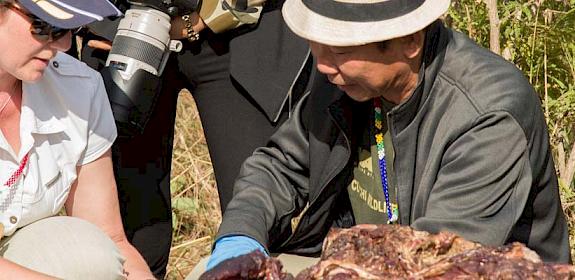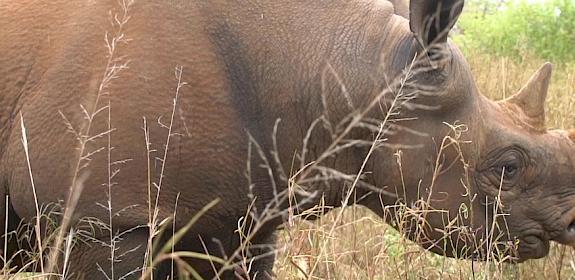Ivory processing workshop found in Angola following airport rhino horn seizure
Luanda, Angola, 28th August 2018—Authorities in Angola have announced the arrest of five Vietnamese nationals in connection with a massive seizure of wildlife products, including 27 rhino horn pieces, almost 800 kg of worked and raw elephant ivory and almost 900 kg of pangolin scales.
According to Portuguese media reports, the discovery was made after X-ray baggage scanning led to authorities opening the luggage of two suspects who were attempting to board a flight to Viet Nam. Inside the suitcases they found 20 kg of rhino horn. Two other suspects were detained at the scene.
The authorities had been on the lookout for the four men following the earlier arrest of a Vietnamese national, who was also found to be in possession of 20 kg of rhino horn.
Further investigation led officers to rented premises in the São Paulo area of Angola’s capital city, where inside they found two ivory processing workshops, along with 535 kg raw and 263 kg worked ivory, 895 kg pangolin scales and 10 kg of medicinal plant products.
The authorities in Angola are to be warmly congratulated for this important seizure, which has led to yet further evidence of ivory processing being carried out in Africa, directed by Asian nationals
Tom Milliken, TRAFFIC’s expert on trade in elephant and rhino products
“A thorough investigation, including full forensic analysis of the materials recovered will doubtless give valuable insights into the modus operandi of this syndicate and lead to further arrests of the criminals behind the wanton destruction of Africa’s natural resources.”
Examination of data in the Elephant Trade Information System (ETIS) indicates that, since 2012, at least 35 seizures have occurred globally resulting in the arrest of 51 Vietnamese nationals couriering a total of 1,751 kg of raw ivory and 458 kg of worked ivory from Angola to destinations in Asia.
Only two of these seizures were made in Viet Nam, but 16 other cases were made along trade chains destined for Viet Nam. Cambodia, China, Laos and Thailand were also identified as final destinations in 29% of the cases.
Viet Nam remains a major end-use market and Angola a source for elephant ivory, rhino horns, pangolin scales and other high profile wildlife commodities from Africa. Both countries have been obligated under the Convention on International Trade in Endangered Species of Wild Fauna and Flora (CITES) to develop National Ivory Trade Action Plans (NIAPs) that address a range of issues serving to facilitate illegal wildlife trade.
"Let's hope this impressive seizure by the authorities in Luanda strikes a real blow to the Angola-Viet Nam connection", said Milliken. "We're losing far too many animals to this festering trade."




